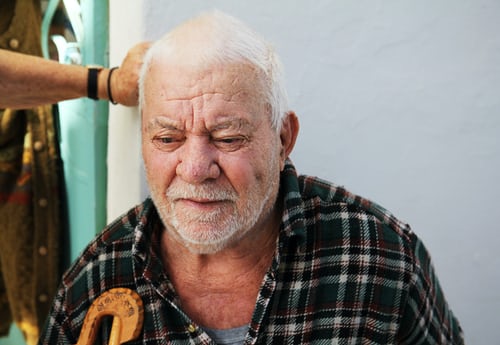Seniors and Depression III – 7 Ways Seniors can Treat Depression
Over the last two weeks I have shared research about what causes depression as well as early warning signs and, if untreated, the negative consequences. Happily, there’s no need to feel depressed, because it’s not all doom and gloom. Depression at any age is treatable, even for seniors. We all have different breaking points or stressors and recognizing those is developed over time. It doesn’t happen overnight.
On several occasions, I have shared that I am not a big believer in better health through better medication. That still holds. I tend to first look for common sense practical answers and only as a last resort seek the help of a professional. I’m not saying that’s bad or something to be frowned upon, it’s merely my personal preference. Rather than dwell on my preferences, let’s forge ahead and look at several positive actions seniors can take to keep depression from mushrooming into one or more serious problems.
- Exercise – According to the Mayo Clinic, “exercise has a direct effect on mood. Even physical activity such as gardening or walking can reduce stress, improve sleep, and ease depression symptoms.”
- Listen to Music – A 2017 study published by the NCBI (National Center for Biotechnology Information) concluded that music therapy does indeed provide short term benefits to people suffering from depression.
- Deep Breathing – WebMD, an online publisher of information about human health and well-being, cites research stating that relaxation exercises like yoga and deep breathing can help in the treatment of depression.
- Positive Self Talk – Writing for Psychology Today, Gregory L. Jantz Ph.D., the founder of The Center-A Place for Hope, a treatment facility for depression and addiction, and a leading expert in the field of mental health, shares how positive self-talk can effectively steer someone away from feelings of depression.
- Staying in Community – HelpGuide, an online website that features articles on mental health issues and wellness, shared that isolation, especially among seniors, can lead to feelings of depression.
- Help Someone – Seth J. Gillihan Ph.D., a licensed psychologist and clinical assistant professor of psychology in the Psychiatry Department at the University of Pennsylvania, shared in Psychology Today, research showing that seniors who had compassionate goals toward helping others were more able to have positive thoughts and feelings and tended to be less depressed than their counterparts who focused on others’ approval.
- Healthy Diet – Dr. Monique Tello, “a recognized expert in the field of mental health and author of the evidence-based lifestyle change guide Healthy Habits for Your Heart,” shared in Harvard Health the importance of a healthy diet as a treatment for fighting depression.
There are, of course, more than seven ways to ward off depression. The goal is to accomplish what I call a healthy pivot, focusing on something else and not the problem. We have the choice to emotionally feed the problem or shift our focus to something more positive. That shift can be any number of activities including taking a walk or going to a movie – whatever works for you.
Do you see how depression can erode a senior’s independence? A recent study shared by the NCBI estimates that roughly 9 billion dollars are spent annually in the treatment of depression in seniors. That’s a big number and it does not include the emotional toll on family and caregivers. Knowing what the causes are and having an awareness of the warning signs are tools to use in helping seniors if and when they need help to make a healthy pivot and focus on something more positive.
If you’re comfortable sharing how you have coped with depression, I invite you to share below so others may be helped.


Thank you for sharing.